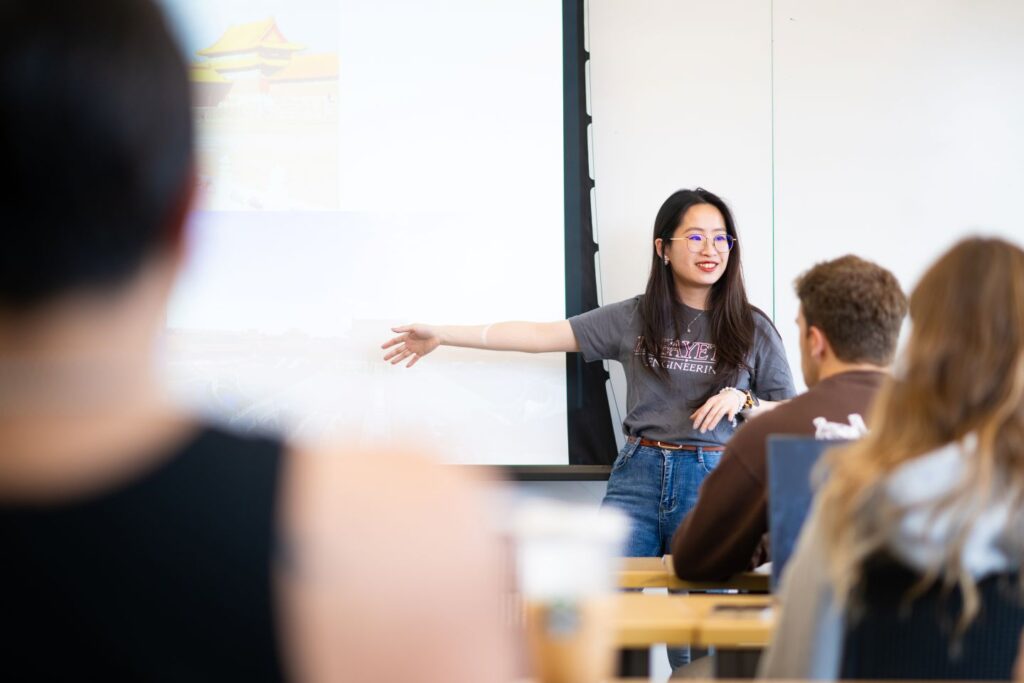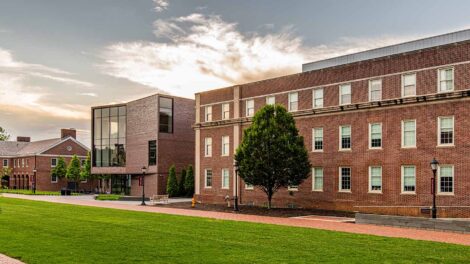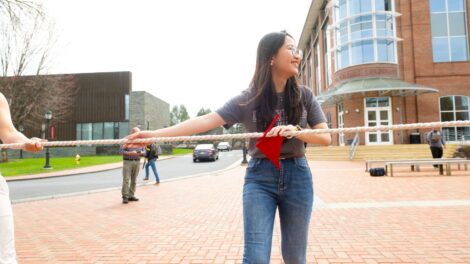Integrative Engineering program receives ABET accreditation
By Bryan Hay
Lafayette College’s Integrative Engineering program has received ABET accreditation, a significant milestone for the program, which was launched in 2019 to increase opportunities to cross the boundaries of traditional engineering degrees.
The accreditation applies to all graduates of the program since the first cohort in 2023. This marks the first new B.S. engineering program at Lafayette to earn accreditation in over a century, the result of a division-wide effort to design, launch, and guide the program through ABET’s rigorous process.
ABET, a nonprofit, nongovernmental organization formerly known as the Accreditation Board for Engineering and Technology, is recognized around the world for accrediting college and university programs in applied and natural sciences, computing, engineering, and engineering technology. ABET accreditation provides assurance that a college or university program meets the quality standards of the profession for which that program prepares graduates.
“We are honored to receive ABET accreditation for our Integrative Engineering program,” says Jenn Rossmann, William A. Jeffers Dean of the Engineering Division. “It is a reflection of the dedication of our faculty and staff in supporting student learning. They’ve invested time and energy into this program, developing new classes and labs, assessing and maintaining them. And it is gratifying for the intrepid students who’ve chosen to pursue this degree.”
In the Integrative Engineering program, students are engaged in a transformative educational experience that bridges the liberal arts, engineering, and interdisciplinary study. Throughout the curriculum, students develop “systems” thinking, which enables them to address complex problems at the intersection of and across a variety of disciplines. Rossmann noted that in designing the systems thinking courses for Integrative Engineering, faculty also developed an introduction to systems thinking for non-engineering students, ES 104.

A required course for an integrative engineering degree, Systems I is also popular among juniors and seniors from other disciplines. (Pictured: Prof. Diana Sun teaching the course during spring of 2024)
Students select an area of focus in bioengineering, robotics, or environment and energy, and can choose relevant coursework from the humanities and social sciences toward the degree requirements to integrate their area of focus with the liberal arts. The program provides a flexible framework designed to foster connections across disciplines. Interest in Integrative Engineering has been steadily growing since its inception, with 59 current students who have declared majors in the program, and 39 who’ve graduated.
Integrative Engineering has been chaired since its inception by David Brandes, Walter A. Scott Chair of Integrative Engineering, professor of civil and environmental engineering, and Air Products Seifi Ghasemi Chair in Engineering for Interdisciplinary Teaching. Brandes and former Jeffers Dean of Engineering Lauren Anderson and Scott Hummel, professor of mechanical engineering and former William A. Jeffers Director of the Engineering Division, led the effort to develop the program, and Brandes guided the program through the ABET accreditation process last year.
“Achieving accreditation is the culmination of long-term team effort in envisioning, proposing, and implementing the program, and many faculty and staff contributed along the way” Brandes says.
“I am particularly proud of the faculty who recognized the need for a cross-disciplinary engineering program at Lafayette and then worked to make that vision a reality, and also to the students who were looking for an alternative to the traditional engineering majors and took the bold path of majoring in Integrative Engineering despite the fact that was not yet accredited,” he adds.

